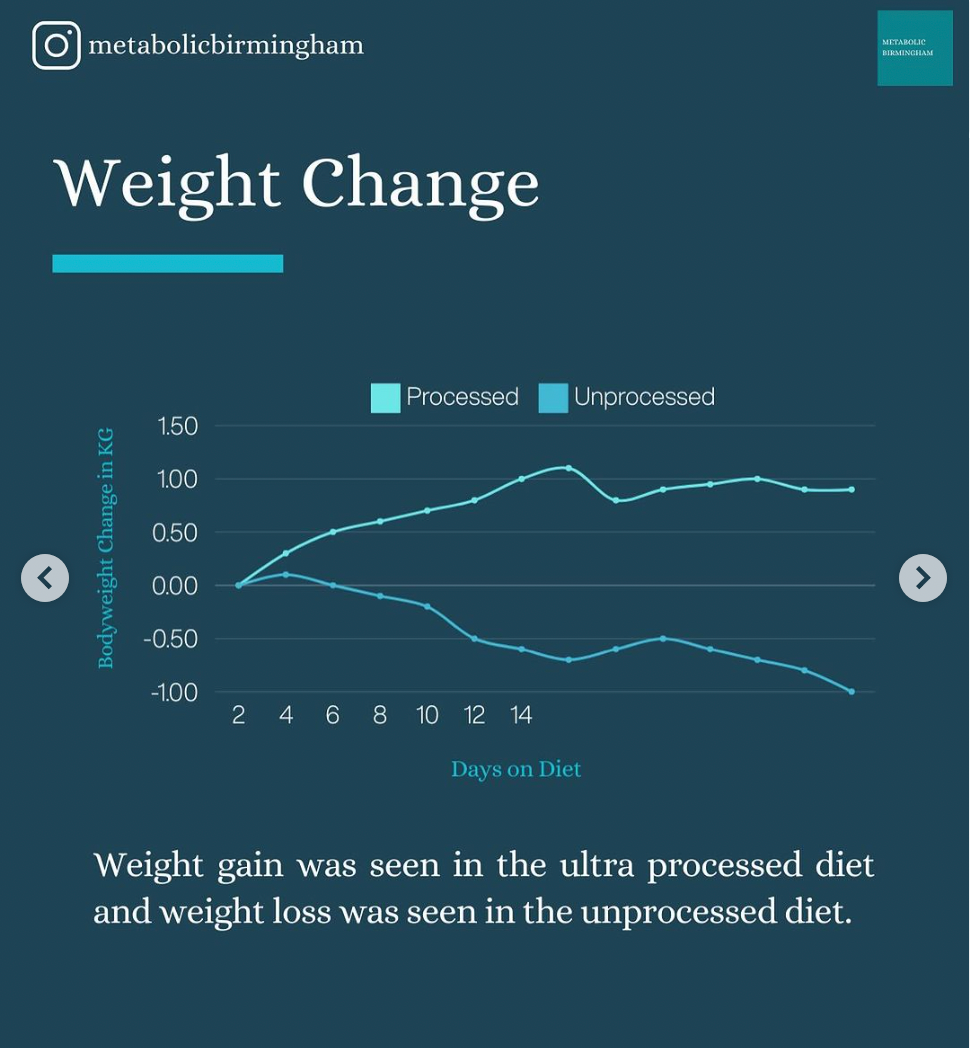Why Low Carb and Low Fat Shouldn't Be Your Only Focus For Weight Loss - The Key Role of Low Processed Foods and the Built Environment in Weight Loss
- Jack Braniff
- May 26, 2024
- 3 min read

When it comes to maintaining weight loss, many people focus on low-carb or low-fat diets. However, the key to long-term success may lie elsewhere. The real game-changer could be minimising the consumption of ultra-processed foods and considering the impact of our built environment. Let’s explore why the composition of your food and your environment matter just as much, if not more, than the macronutrient content of your diet.
Behavioural and Environmental Factors that Influence Energy Balance Following Weight Loss
Food Composition
Modern dietary trends often point fingers at carbohydrates or fats as the main culprits behind weight gain and weight maintenance challenges. However, scientific research tells a more nuanced story. Numerous well-controlled clinical trials have shown that isocaloric diets—diets with the same calorie content but varying macronutrient compositions—have no significant impact on energy storage or expenditure. In other words, whether you choose low-carb or low-fat, the short-term effects on weight loss are minimal.
For example, studies comparing low-carb and high-carb diets found negligible differences in weight loss outcomes. Interestingly, participants on minimally processed high-carb diets consumed almost 700 fewer calories per day and lost more body fat than those on low-carb diets. This finding challenges the notion that high-carbohydrate diets inherently impede weight loss maintenance.

The Impact of Ultra-processed Foods
The consensus among nutrition experts is that the real issue isn't just about carbs or fats—it's about the level of food processing. Ultra-processed foods are everywhere. They are cheap, tasty, convenient, and heavily marketed. Unfortunately, these foods often contribute to overeating and weight gain.
A pivotal study demonstrated this by comparing diets rich in ultra-processed foods to those rich in unprocessed foods, with both diets matched for sodium, sugar, fat, and fibre content. Participants on the ultra-processed diet consumed more calories and gained more body fat, whereas those on the unprocessed diet ate fewer calories and lost body fat. This study underscores the idea that reducing ultra-processed food intake can significantly aid in weight loss maintenance.

The Built Environment
The built environment, which includes where you live, plays a crucial role in your health and ability to maintain weight loss. Key factors are walkability, recreational spaces, and access to healthy food.
Key Points:
Walkability and Physical Activity: A meta-analysis of studies shows areas with higher walkability and less urban sprawl are linked to lower obesity rates and more physical activity. For example, urban redevelopment in Charlotte, North Carolina, with a new light-rail system and improved walking paths, led to lower BMI and increased physical activity.
Tip: Get your steps in!
Food Availability: Being close to fast food stores is associated with higher obesity rates, while access to fresh fruits and vegetables promotes healthier eating.
Tip: Identify local supermarkets or shops that offer fresh produce. Plan your meals around these healthier options.
Impact on Weight Loss
Your environment doesn't just influence your daily habits; it also affects how well you stick to weight-loss programs. Factors like the density of grocery stores, the walkability of your area, and the economic status of your neighborhood can impact your success.
People living in areas with more unhealthy food options and fewer healthy choices often find it harder to manage and maintain weight loss.
By understanding and improving your built environment—like seeking out walkable areas, advocating for better food options, and reducing stressors—you can create a healthier lifestyle that supports your long-term weight maintenance goals
Conclusion
While the debate between low-carb and low-fat diets continues, there’s a more effective strategy: focus on reducing ultra-processed foods and improving your environment. These factors play a huge role in overeating and weight gain due to their convenience and taste. By prioritising minimally processed foods and creating a healthier built environment, you can achieve long-term weight maintenance..
Need more help on your weight loss journey. Metabolic Birmingham uses metabolic testing to help craft a plan based on you as an individual. Keen to find out more, then book a call today to see how we can help.





Comments